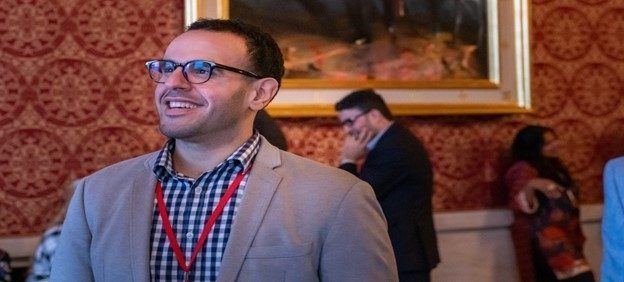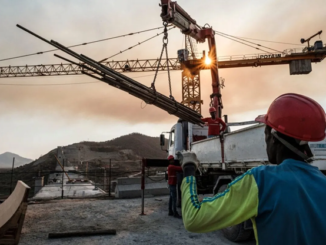
Human rights organizations say treatment of Dr. Salah Soltan, father of Mohamed Soltan, may amount to enforced disappearance as well as torture
An alliance of leading human rights organizations have voiced serious concern about Egypt’s ongoing harassment and intimidation of the family of the US-based activist Mohamed Soltan.
The father of Mohamed Soltan, an Egyptian-American human rights activist who filed a lawsuit against the Egyptian state for torture and other crimes against humanity, has been held in incommunicado detention since June 2020.
Egyptian authorities have held Salah Soltan in incommunicado detention since June 2020, in conditions that amount to enforced disappearance and may amount to torture or other ill-treatment, in likely retaliation for his son’s human rights activism, 15 human rights groups said yesterday.
Earlier that same month, Soltan’s son Mohamed, a prominent US-based human rights defender, filed a civil suit in a US federal court under the Torture Victim Protection Act against former Egyptian Prime Minister Hazem al-Beblawy for his role in Mohamed’s alleged torture in Egypt in 2013.
The authorities forcibly disappeared Salah Soltan on June 15, 2020, detaining him for over a year in locations they refused to disclose, before allowing two family members a brief prison visit in August 2021.
During that visit, Salah Soltan informed them about his appalling detention conditions, including prolonged solitary confinement, since June 2020. The authorities did not respond to his family and lawyers’ inquiries about his whereabouts during the period of his enforced disappearance and have since refused to allow him to contact his family or lawyers, subjecting him to incommunicado detention.
In a joint statement on Monday, Human Rights Watch, Amnesty International, Democracy for the Arab World Now (DAWN) and 12 other rights groups said Salah Soltan’s arrest and treatment may amount to enforced disappearance and may amount to torture or other ill-treatment.
“Salah Soltan’s enforced disappearance, incommunicado detention, and mistreatment very much look like acts of reprisal aimed at inflicting pain on Mohamed Soltan for his human rights work abroad,” said Joe Stork, deputy Middle East and North Africa director at Human Rights Watch.
“Those responsible for Soltan’s disappearance and ill-treatment in detention should be held to account.”
Mohamed Soltan, who spent 643 days in prison in Egypt after being arrested in July 2013, filed a lawsuit against former Egyptian Prime Minister Hazem el-Beblawi in a US court last year.
He accused the former prime minister of direct responsibility for his treatment, which included being shot, beaten and tortured.
He sued Beblawi under the Torture Victim Protection Act (TVTP), a 1991 US law that allows victims of torture to sue for compensation from their tormenters if the accused are in the US and no longer head of state.
In September, a US judge – citing a filing by the Biden administration that upheld Beblawi’s diplomatic immunity – dismissed the lawsuit.
The Biden administration has been heavily criticized for its dealings with Egypt after the US president had vowed to end “blank cheques” to the government. Biden had also said in a tweet that the torture of Soltan was “unacceptable”.
Last week, more than a dozen foreign policy experts called on the US to press Egypt on human rights reforms as the two countries’ foreign ministers met for a two-day strategic dialogue summit.
“Under Abdel Fattah al-Sisi, Egypt is one of the world’s worst human rights abusers,” 15 members of the Working Group on Egypt said.
Egypt is considered to be the world’s third-worst jailer of journalists, behind China and Turkey, with an estimated 60,000 political prisoners being held in jails in the country, according to rights groups.
Egypt’s Abdel Fattah al-Sisi has consistently denied this, saying there are no political prisoners and framing the crackdown as part of a fight against terrorism.
The campaign against dissidents has also targeted US citizens, permanent residents, visa holders and their family members, according to a report released in May.
“The Egyptian authorities must immediately communicate to Salah Soltan’s relatives his whereabouts, and release him from detention,” Lynn Maalouf, Amnesty International’s Middle East and North Africa deputy regional director said on Monday.
“Pending his release, the authorities must end his solitary confinement and ensure he has access to a lawyer of his choosing, contact with his family, and access to adequate and timely health care.”
In October, several US lawmakers proposed an amendment to the National Defense Authorization Act that would require the State Department to report to Congress any harassment and reprisals against “United States citizens, individuals in the United States, and family members of such citizens and individuals carried out by the security agencies of the Government of Egypt in Egypt or the United States.”
“The Egyptian authorities must immediately communicate to Salah Soltan’s relatives his whereabouts, and release him from detention,” said Lynn Maalouf, Amnesty International’s Middle East and North Africa deputy regional director. “Pending his release, the authorities must end his solitary confinement and ensure he has access to a lawyer of his choosing, contact with his family, and access to adequate and timely health care.”



